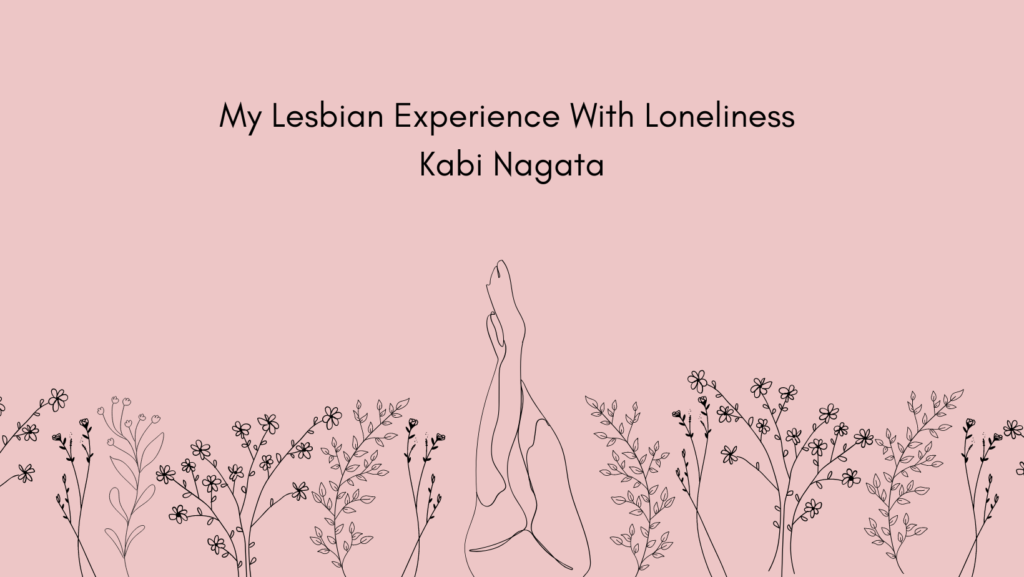

When an anxious person lives abroad, the mere ringing of the doorbell can become a challenge. We get tachycardia lifting the intercom, and lose our voice as we ask ‘Who is it? Can you repeat? Polako, molim vas (Slowly, please)’. These interactions are especially difficult when an Amazon delivery man insists on handing you a package that you did not order.
When I found myself in this situation, I realized shortly after that it had recently been my birthday, and my best friend had suspiciously asked for my address a few days earlier. In the package I found a manga, through which I started flipping already in the lift. For a couple of days, I couldn’t put it away, I read it over and over again, spoiling the pages.
In My Lesbian Experience With Loneliness, Kabi Nagata manages to summarise in a few sentences, or simple drawings, certain concepts that took me years to identify, understand and accept. Why did I select this manga for the ExCo library? Because it talks about the need to deconstruct the identity we have (or think we have) in order to really know ourselves.
It is a terrifying process. I already have but a few certainties in life, why undermine them?
But are they really certainties if I am so afraid to touch them? Or are they concepts that I decided to make my own because it was easier like that? Let’s dive into the book.
Once high school is over, all the pillars that had characterised Kabi Nagata’s life (high school girl, lover of western films, pottery, and X’s friend) collapse, and she feels as if she no longer has any defined boundaries and is about to dissolve into thin air.
The consequences of this are depression, eating disorders and an overwhelming sense of inadequacy. Only with much self-analysis, and through a path of hospitalisation, healing, and relapses, does Kabi gradually manage to get back on her feet, and thanks to a couple of enlightening job interviews, she realises something important about herself.
What drove her choices in the past was not her own will, but the will of a single part of herself, the part that desperately wanted the approval of her parents and society: a tidy house, a steady job and the much-coveted parental approval.
When she chooses not to seek a traditional job, but to focus on drawing manga, she discovers a new energy that she had always seen in other people, but could not find in herself.
This metamorphosis does not happen peacefully, but with inner struggles, fear, victories and defeats. And this is not surprising. Such a radical transformation (which she accomplishes over the course of a decade or so) necessarily leaves marks, it is only natural.
Change in life is not only possible, but inevitable. This, of course, does not mean that it is easy. Deconstructing one’s identity in order to be able to observe and care for it is a tiring and stressful process, but just like repotting a plant: you do it so that it can continue to grow.



Start your journey in the Extinguished Countries!
Get a free chapter from our first guidebook “Republic of Venice” and join our community!